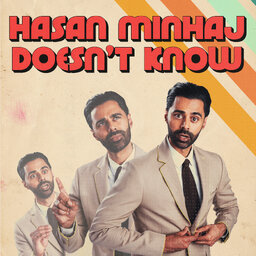The Birthday Party with Charles Randolph | Development Hell
Before Charles Randolph won an Oscar for writing “The Big Short,” he adapted a memoir called “The Birthday Party”: the true story of a white man kidnapped by three young Black men. Is there a way to bring a story like that to screen, in a way that's honest and authentic? Randolph gives us a masterclass on a screenwriter's many minefields.
In 1 playlist(s)
Revisionist History
Revisionist History is Malcolm Gladwell's journey through the overlooked and the misunderstood. Ever…Social links
Follow podcast
Recent clips

The Big Birthday Party
32:00

Invisible Infrastructure with T-Mobile for Business
43:46

Malcolm Gladwell Doesn't Mind Being Wrong | From Hasan Minhaj Doesn't Know
1:02:56
 Revisionist History
Revisionist History